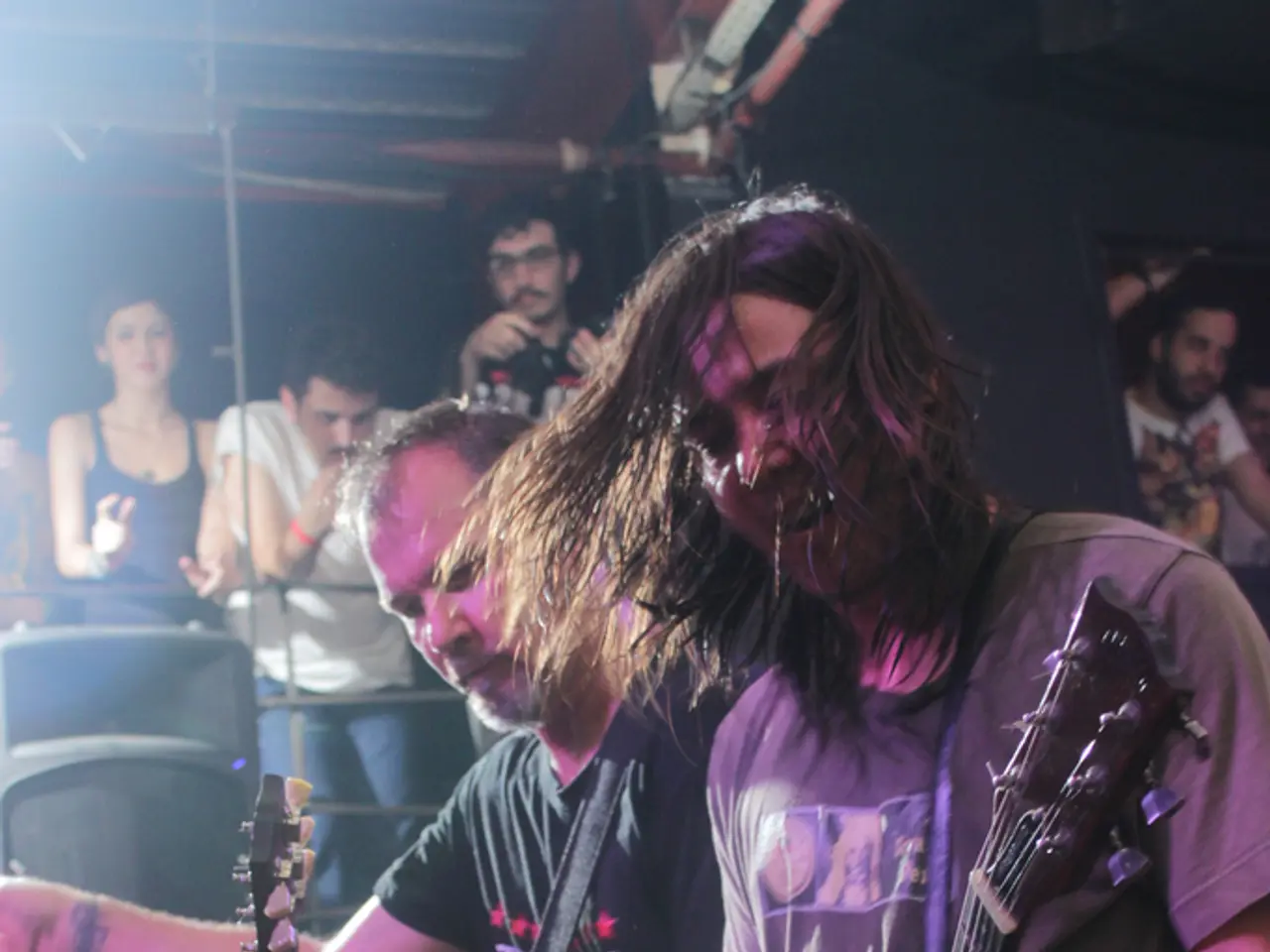TikTok and Universal Music Group's Contract for Music Rights
In a significant turn of events, Universal Music Group (UMG) and TikTok have reached a new licensing agreement, ending a months-long dispute that saw UMG pull its entire music catalogue from the popular social media platform.
The disagreement, which began in 2024, revolved around fair artist compensation and the regulation of AI-generated music content on TikTok. UMG initially expressed concerns about the unregulated use of AI recordings on the platform diluting the royalty pool for human artists [1].
TikTok's popularity has been instrumental in the success of many musicians, with artists like Sabrina Carpenter, Noah Kahan, and Katie Gregson-Macleod landing record deals and gaining millions of streams [9]. Carpenter, for instance, promoted her single "Espresso" using a loophole on TikTok, despite the UMG licensing dispute, making it a TikTok certified hit [7].
UMG, one of the largest and most influential music companies globally, with labels like Capitol Music Group, Def Jam Recordings, and Republic Records, had threatened TikTok's current success, which relies heavily on the creation of viral audios [8].
The new agreement, reached on May 1, 2024, reinstates the availability of UMG's extensive music catalogue on TikTok, signalling a compromise addressing these concerns [5][4]. UMG had already engaged in partnerships aimed at ethical use of AI in music prior to the removal, demonstrating their broader commitment to managing AI-generated content responsibly [5].
The key points of this resolution include updated licensing terms that likely include stronger protections and payments related to AI-generated music and artist rights. However, exact contractual details were not publicly disclosed.
UMG also expressed concerns about TikTok proposing payments for artists and songwriters at a rate lower than other major social platforms [10]. As part of the new agreement, UMG and TikTok will collaborate to realize new monetization opportunities utilizing TikTok's e-commerce capabilities.
The resolution allows music from UMG artists to return to TikTok while addressing the challenges of AI content regulation on the platform. Notably, AI recordings have become viral on TikTok, using the voices of artists like Lana del Rey and Drake, without their consent [2].
In a positive development, Taylor Swift's catalog returned to TikTok before the release of her double album The Tortured Poets Department: The Anthology [6]. As the music industry continues to evolve, it is clear that partnerships between music companies and social media platforms will play a crucial role in shaping the future of music consumption.
References: 1. UMG Removes Music from TikTok over AI Concerns 2. AI-Generated Music Goes Viral on TikTok without Artist Consent 3. Sabrina Carpenter's Espresso Tops Charts due to TikTok Popularity 4. UMG and TikTok Reach Licensing Agreement, Restoring Music Catalogues 5. UMG's Commitment to Ethical AI Use in Music 6. Taylor Swift's Catalog Returns to TikTok 7. Sabrina Carpenter Promotes Single Using TikTok Loophole 8. UMG's Decision Threatens TikTok's Current Success 9. TikTok's Role in the Success of Musicians 10. UMG Expresses Concerns over TikTok Payment Rates
- The resolution between Universal Music Group (UMG) and TikTok, apart from music, could potentially open new avenues for education-and-self-development, as both parties collaborate to explore monetization opportunities using TikTok's e-commerce capabilities.
- In the realm of photography, a significant impact is visible as TikTok's user-generated content, including music videos, plays a substantial role in shaping contemporary culture.
- The use of technology, particularly AI, in music content creation on TikTok, has sparked controversy in the past, with incidents of AI-generated music and vocals going viral without artist consent, raising questions about culture and ethical rights.




